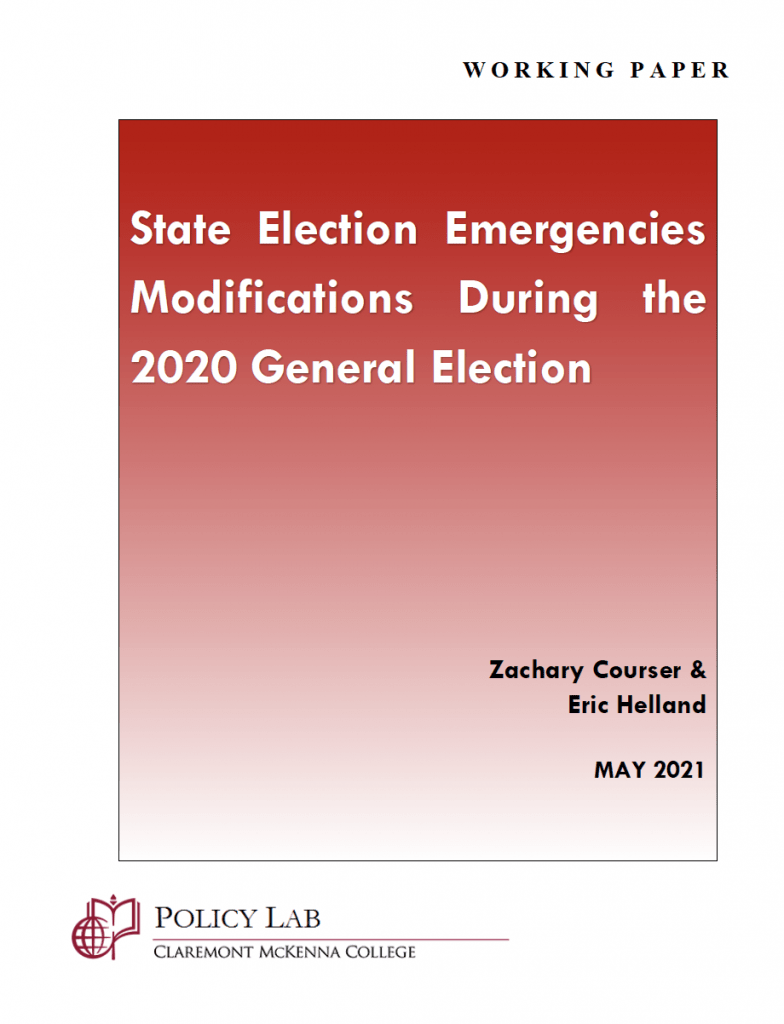Working Paper, May 2021
State Election Emergencies Modification During the 2020 General Election
EXECUTIVE SUMMARY
Despite Congress’ constitutional power to regulate federal elections, it has repeatedly abstained from doing so. The lack of a policy regarding federal elections meant that states were primarily responsible for managing the effects of the pandemic on the 2020 general election. It was up to individual states to enact statutes, issue rules or emergency orders to deal with the public health risks associated with voting during the pandemic. The variations in their responses to the election emergency caused by the COVID-19 pandemic could have had implications on accessibility, turnout, and the perceived legitimacy of the election. To understand this relationship, we to catalog the measures states took in 2020 in preparation for the general election, and draw conclusions as to their effects on vote access. We also determine how or whether a federal government policy on disrupted elections could have aided states in responding to the elections emergency caused by the pandemic.
We found that partisan considerations generally predominated over state responses to the pandemic election emergency, reflecting the highly polarized political atmosphere of the 2020 election over attitudes regarding COVID-19 and mail-in balloting. Democratic states tended to take stronger emergency actions to increase accessibility, while Republican states were less likely to enact emergency modifications. This difference was especially true for state actions related to mail-in balloting. We also concluded the existence of preexisting state laws concerning elections emergencies had little effect on their responses during the 2020 general election. Lastly, we found that partisanship was more highly correlated with voter perceptions of the election’s legitimacy than was the scale of election modifications states made.
The full working paper can be found here.

